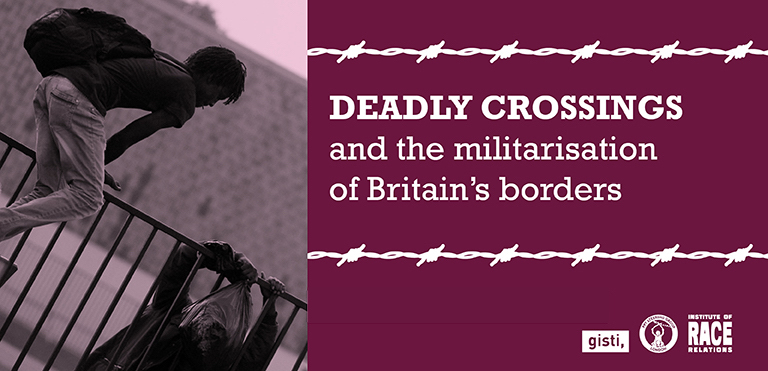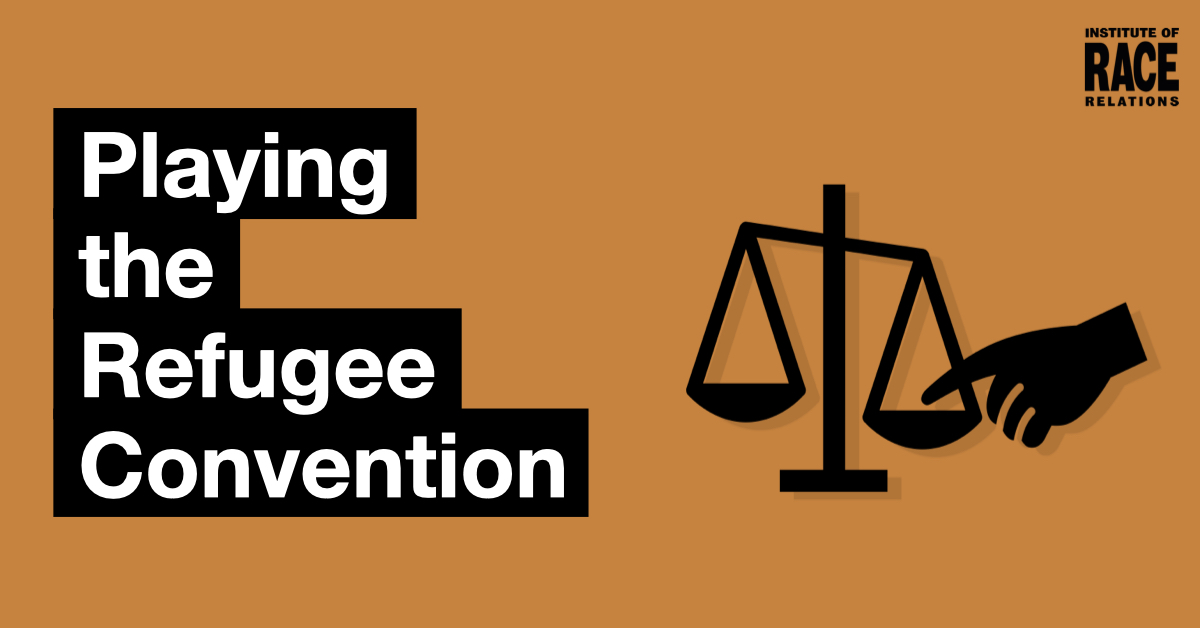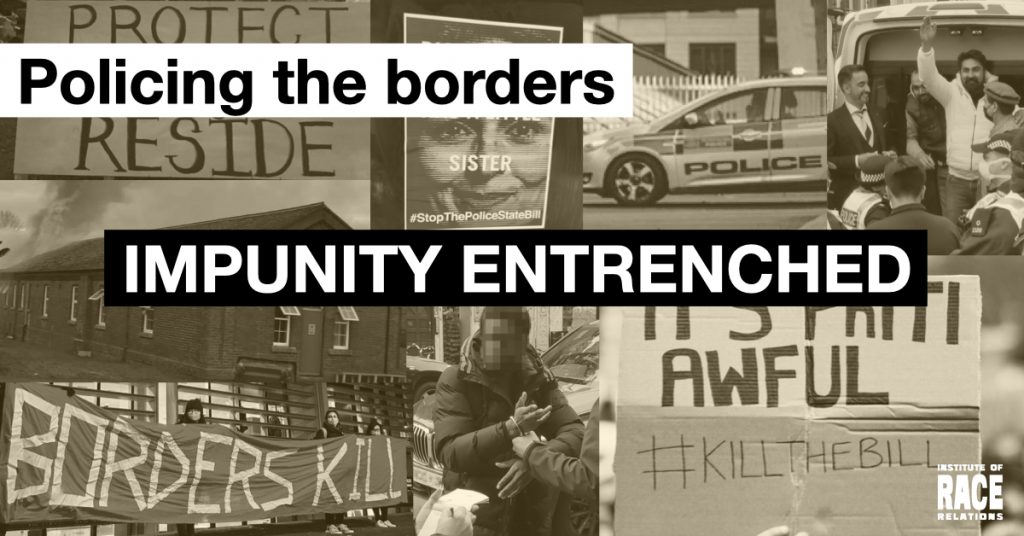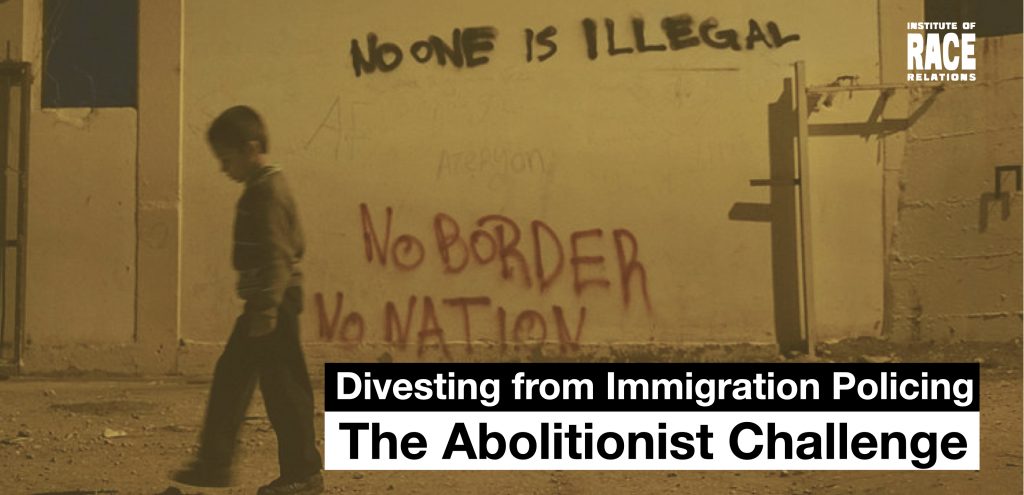The hostile official reception for asylum seekers crossing the Channel is extended to recognised refugees in the Nationality and Borders Bill, which expands the discredited policies of exclusion, criminalisation and deportation to the point of threatening the very institution of asylum.
‘Performative cruelty’
After a five-year-old Afghan refugee boy, Mohammed Munib Majeedi, was killed in August falling from a ninth-floor hotel window in Sheffield, days after his family had been housed there, it emerged that the Home Office had been warned about safety concerns but failed to carry out safety checks before moving the family in. Freedom of Information requests from Liberty Investigates revealed in October that 95 people living in asylum accommodation had died since 2016 – nearly twice as many as the 50 disclosed in previous FOI requests. Of the total, 69 had died since the beginning of 2020, when the Home Office began pushing asylum seekers into hotels, instead of housing them in the community. Frequently the cause of death is not disclosed.
Until the High Court ruled it unlawful in October, asylum seekers housed in hotels were denied any cash allowance, essential for phone communication with family and lawyers. The home secretary argued it would act as a ‘pull factor’. A study by Edinburgh Napier University in September found asylum hotels ‘akin to detention centres’, affecting asylum seekers’ mental and physical health. At the end of November, 12,000 evacuees from Afghanistan were still in hotel ‘bridging accommodation, according to Home Office minister Baroness Williams – unable to work, their children frequently unable to access schools, and with difficulty getting GP services, with no target date for moving them into permanent homes. Some were so desperate that they were begging to be sent home.
Dozens of unaccompanied asylum seeking children are also stuck in hotels. Brighton and Hove Council asked the Home Office to stop using a hotel where scores of child refugees were housed despite no Covid-19 risk or safety assessment. The council had been given less than 24 hours’ notice, a legal firm was denied access to a teenage referral there, and senior Home Office officials were unable to tell the Home Affairs Committee how the private contractors they claimed were providing 24/7 social care to the children had been recruited or what qualifications they held.[1]
The Home Office is still housing asylum seekers in barracks too. Penally in Wales was closed in March following a highly critical joint report by the ICIBI and HM Chief Inspector of Prisons describing it and Napier, near Folkestone, as ‘squalid and unsafe’ – but Napier is set to be used for a further five years after the Home Office granted itself planning permission until September 2026. This despite Public Health England deeming it unsuitable in a pandemic; a large Covid outbreak in January 2021; a Fire Safety Inspectorate assessment that it was a fire risk (and an outbreak of fire two months later); a High Court ruling in June that its use was unlawful; and the All Party Parliamentary Group on Immigration Detention decrying its ‘alarming’, ‘insanitary, crowded, prison-like’ conditions in September. A volunteer at Napier is challenging the decision to keep it open as unlawful. Survivors of trafficking and other mentally vulnerable people reportedly continue to be housed there, in breach of Home Office assurances. The Home Office maintains that ‘The health and wellbeing of asylum seekers has and always will be our priority.’ The reception and treatment of those making the Channel crossing is the worst it has ever been, according to volunteers helping new arrivals in Kent, who describe it as ‘performative cruelty’.
Asylum: destruction of rights as ‘wholesale reform’
It is impossible to disagree with Priti Patel’s constant refrain that the asylum system is ‘broken’ and needs ‘wholesale reform’. The Independent Chief Inspector for Borders and Immigration’s November report on asylum decision-making found it failing in nine separate ways, including chronic delays (the wait for an asylum decision was 449 days in 2020, almost double that in 2017, and 550 days for unaccompanied children, whose claims should be prioritised; inadequate training of asylum caseworkers, who are often ignorant of country conditions; confrontational and insensitive questioning of claimants by some officials, with stereotyping and the ‘culture of disbelief’ still in evidence; and poor quality decisions, with frequent serious errors.
Of course, when she talks of a ‘broken’ asylum system, Patel doesn’t mean this. She means simply the fact of asylum, that people travel to the UK and claim asylum, in accordance with the Universal Declaration of Human Rights and the 1951 Refugee Convention, despite the efforts of successive governments since the 1980s to prevent them, through impossible visa requirements, carrier sanctions, juxtaposed controls, border patrols, ever-higher fences and walls, security cameras, night vision cameras, razor wire, machines, X-ray, carbon dioxide and heat detecting machines. The securitisation of the Channel Tunnel area has virtually closed the option of lorry travel, and the majority of asylum seekers now attempt the crossing in small boats, which is, as the government acknowledges, perhaps even more dangerous.
The Home Office aims to make Channel crossings ‘unviable’ through operational measures and legislation. The former include aerial surveillance,[2] paying France to deploy more vehicles and beach patrols – the securitisation of Calais means that the boats now leave from a 100km stretch of coast – and plans for physical pushbacks of the flimsy boats to French waters. Border Force officials have been seen training for pushbacks using jet-skis, despite warnings from, among others, the government’s own lawyers, that the practice would put lives at risk as well as breaching international law. The phrase ‘liquid graveyard’, often applied to the Mediterranean, is now becoming applicable to the Channel crossing, where the securitised border regime has led to at least 43 boat-related deaths in the last 18 months. Of these, 27 people – 17 men, seven women (one pregnant) and 3 children, almost all identified as Iranian Kurds, died on 24 November, when their dinghy sank off the French coast after distress calls to both French and English coastguards were allegedly ignored. The home secretary’s claim that the purpose of the Bill is ‘breaking the business model of people smuggling networks and protecting the lives of those they endanger’[3] is belied by previous experience in the Mediterranean and the Channel, showing that deterrent measures only lead to more dangerous and costly journeys, and by the Bill’s civil and criminal immunity for officials causing injury or death during pushback operations. The PCS union, representing Border Force officials, says officials will if necessary disrupt its implementation, and has joined the refugee charity Care4Calais in a legal challenge to the ‘unlawful, unworkable and above all morally reprehensible’ pushback policy – one of three legal challenges to the pushback plans.

Existential threat to asylum
The Nationality and Borders Bill puts into legislation Patel’s New Plan for Immigration. The public consultation on the Plan received over 8,500 responses, three-quarters opposing it – but contrary to normal practice, the government has refused to publish these, and published the Bill before responding to the consultation. The Bill, currently going through the House of Lords after being passed by the Commons, poses an existential threat to the right to asylum, in its measures to stop spontaneous refugee arrivals while providing no safe and legal alternative. Admission to a refugee resettlement scheme is ‘like winning the lottery’: for all but a minuscule number (pre-screened by the United Nations High Commissioner for Refugees, UNHCR, in refugee camps in Turkey, Jordan and Lebanon), there are no safe and legal routes to asylum in the UK, and the Bill creates none. Thousands of Afghan nationals risking reprisals from the Taliban for their work with the British were abandoned in the chaos surrounding the fall of Kabul in August, but the government has not announced any coherent plan to get them out, and took five months to set up a general resettlement scheme, which will take in just 20,000 Afghan civilians – 5,000 a year.[4] Nor does the Bill provide any routes to family reunion for asylum seekers, even for unaccompanied minors with relatives in the UK, in breach of the government’s pledge to replace the family reunion provisions of the Dublin regulation after Brexit.
The Bill differentiates refugees according to their mode of arrival, penalising those not coming directly from the country of persecution, who may be declared inadmissible, and liable to be ‘offshored’ – removed to any safe country which will have them, either for processing or for good. This is the government’s stated preferred option, and ministers have reportedly considered Ascension Island, or Albania, strongly denied by the Albanian government, or Rwanda – but so far no country has agreed.
While awaiting removal, these ‘inadmissible’ asylum seekers face quasi-detention in barracks-type ‘basic accommodation’. If they cannot be ‘offshored’, their asylum claims will be processed, but even if they are recognised as refugees, they will be granted only temporary protection status for 30 months, with reduced family reunion rights, no access to welfare benefits or work, and with the possibility of removal permanently looming. Refugees, including those abandoned in Afghanistan, who have endured a terrifying odyssey to reach the UK on top of the persecution or conflict which forced them to leave their own country, are thus consigned to a torturous indefinite limbo. Eminent lawyers, Church of England bishops, leading Tories, the JCHR, UNHCR and hundreds of civil society groups have condemned the proposals.

Punishment, punishment, punishment
Ministers state that the target of the Bill’s criminalisation provisions is ‘evil criminal gangs’,[5] but they will allow refugees arriving without authorisation to go to prison for up to four years. Since penalisation of refugees unlawfully entering the country contravenes Article 31 of the Refugee Convention, the Bill rewrites the Article to say what it wants it to mean. Persons helping refugees to arrive and claim asylum in the UK for humanitarian reasons and not for gain will risk a life sentence, although a late amendment, brought in after public outcry at the potential criminalisation of rescuers including the RNLI, exempts acts of rescue by the coastguard and makes rescue of persons in distress at sea a defence to facilitation charges in certain (not all) circumstances.
Among other punitive provisions in the Bill, maximum sentences for overstayers and people returning in breach of a deportation order will go up from six months to four years. And nationals of countries which fail to cooperate with the readmission of those deported from the UK could be charged more for visas, wait longer for them or even have visas suspended.
The Bill makes it more difficult for refugees and victims of trafficking or modern slavery to succeed in their claim, imposing a higher threshold of proof; penalising late evidence (despite the wealth of evidence on the impact of trauma on memory and on the ability to articulate); and curtailing appeal rights. It reintroduces discredited ‘fast track’ processes ruled unlawful seven years ago for creating injustice, enables more prolonged detention, and allows the use of unreliable and unsafe methods of age assessment on children. It excludes those with a criminal conviction from trafficking protection, a measure condemned by the JCHR as being ‘not compliant with the prohibition on slavery and forced labour’ (trafficking victims are often convicted of crimes committed under duress). The Bill also removes the protection against refoulement for any refugee convicted of crime and sentenced to 12 months’ imprisonment, deeming the crime ‘particularly serious’ and the refugee ‘a danger to the community of the United Kingdom’.
Dodgy arguments, false premises
The home secretary has resorted to some disreputable, dishonest and dangerous arguments in promoting the Bill’s asylum provisions. She told a Lords Committee that 70 percent of those crossing in small boats were single male economic migrants, not genuine refugees – even though Home Office figures show that over 90 percent come from countries riven by conflict or persecution, 98 percent claim asylum, and over 60 percent are found to be refugees. She blamed the Liverpool bomb attack by refused asylum seeker Emad al-Swealmeen on the ‘dysfunctional asylum system’ which she claimed was a ‘complete merry-go-round’ with a ‘whole industry’ devoted to defending the rights of those seeking to cause harm – words that drew a rebuke from the head of counter-terrorism policing, who pointed out that the vast majority of terrorists are British-born or raised.
Among the false premises on which the asylum provisions are based, the ‘first safe country’ principle is a fabrication: the Refugee Convention does not require refugees to claim asylum in the first safe country they reach, and UNHCR (the body charged with supervising its operation) says, in its commentary on the Bill, it is ‘unworkable’ and would undermine the Convention’s ‘global, humanitarian and cooperative principles’. The idea that decent treatment of asylum seekers creates a ‘pull factor’ incentivising others to come, and deterrent measures will stop them trying, is an obscenity in itself, and the Home Office’ refusal to publish its own research into the reasons asylum seekers come to the UK indicates that the evidence contradicts the ‘pull factor’ theory – previous studies cited family, friends and language as among the primary reasons, along with, ironically, the country’s reputed respect for human rights.
Removal of citizenship by stealth
The nationality provisions of the Bill, while mainly remedying historical anomalies, contain a late amendment allowing ministers to revoke citizenship without notice, in a range of circumstances – although the idea that ‘an uncommunicated administrative decision can bind an individual’ was described as ‘an astonishingly unjust proposition’ by the law lords in 2003.[6] Amendments to nationality law since 2002 mean that British-born citizens with another nationality can have their citizenship revoked if it is ‘conducive to the public good’, and since 2004 deprivation takes immediate effect on service of the notice. Most deprivations now take place when citizens are abroad; they are then served with an exclusion order barring them from returning to their (former) country of citizenship. If this amendment is passed, many won’t know they are no longer British until they try to return home, or need help from the British Embassy. The deprivation powers have overwhelmingly been used against British Muslims, and give rise to a sense of precarity in minority communities that citizenship is no longer a solid, reliable, lifelong status but one that can be removed at will, reducing dual-national British citizens to migrant status.
https://twitter.com/IRR_News/status/1460996087846780944?s=20
Deportations and Windrush
If anyone hoped that the Windrush scandal would lessen the Home Office’ appetite for deportation, such hopes were in tatters by the end of the year, and the rate at which judges ordered officials to take people off the flights was an indication that zeal frequently overrode legality. In July, the Home Office conducted the first mass deportation to Zimbabwe for decades, believed to be the result of a ‘secret deal’ with the Zimbabwean government and described by campaign group Detention Action as a ‘grubby operation’ that ‘risks delivering democracy activists to political persecution’. The flight left with only one-third of those scheduled for deportation on board, thanks to legal challenges, but included some who came to the UK as young children. A second deportation flight to Zimbabwe took place in August. Of 90 proposed passengers on a deportation flight to Jamaica in August, only seven left. Two were in their sixties, one suffered from mental confusion, one had recently lost a child to ‘medical negligence’ according to a coroner, and was forced to leave his partner to grieve alone, and five had indications of trafficking linked to county lines. In November, the Jamaican High Commissioner was ‘deeply concerned’ at the impending deportations of up to 50 people, many in the UK since childhood (one was 3 months old when he arrived) with no familiarity with or relations in Jamaica. Only four were left on the flight after legal challenges.
Two mass charter-flight deportations of Vietnamese nationals also led to a legal challenge in the summer, on the basis that people showing clear indicators of trafficking were being processed and rejected in a ‘detained fast track’. Campaigners revealed that four out of five negative Home Office decisions on trafficking were overturned on appeal.
And what of the original Windrush victims? Their treatment under the compensation scheme is an enduring shame. By November 2021, three and a half years after the scandal broke, only 864 of the estimated 15,000 victims had received any compensation, and 23 people had died waiting. The questioning of applicants and the evidence demanded was too similar to the nightmare which they were meant to be compensated for, making it unsurprising that only 3,000 people had applied. In July, the Public Accounts Committee declared the scheme unfit for purpose, with only six caseworkers when it needed 125, ‘demand[ing] evidence it acknowledges many claimants do not have’, and ‘beset with the very same issues that led to the initial terrible mistakes’. In September, two claimants began a legal challenge over the delays, which have left them in desperate financial straits. In November, the Home Affairs Committee said the scheme should be taken away from the Home Office, to ‘rebuild trust’. To add insult to injury, two Windrush campaigners with accreditation for the Conservative party conference were turned away in case they protested, and were only admitted chaperoned.
Communities resist
There has been very strong resistance and protest against the Home Office operations and proposals – from the over 6,000 responses opposing policies in Priti Patel’s New Plan for Immigration at the beginning of the year, to the 300,000 signatories to the petition against clause 9 of the Nationality and Borders Bill at the end of it. Numerous demonstrations and days of action have supported refugees. Following right-wing attacks on Channel rescues, donations to the Royal National Lifeboat Institution (RNLI) tripled, with the charity ‘inundated with donations and messages of support’. And in May, hundreds of local people chanting ‘These are our neighbours, let them go’ surrounded a UK immigration enforcement van in Kenmure Street, Glasgow, forcing officials eventually to release two men they had detained in a dawn raid. Even Border Force officials have said they will refuse to carry out ‘pushback’ operations in the Channel. The call for a radical re-setting of migration and asylum policy so that it is rights-based, not the reflex ‘punish-and-control’ model that fails to protect anyone except the corporations profiting from it, is spreading, in parallel with the ‘Defund the Police’ call of abolitionists in the criminal justice sector.
This is the first in a 5-part series, Impunity Entrenched, examining the sheer proliferation of government measures and proposals put forward during 2021. IRR Vice-Chair Frances Webber reviews Borders and Immigration, Policing, Ministerial impunity and the rule of law, Free expression and equalities, and Human Rights. Read the whole series>



A comprehensive account of all that is wrong with the current system and proposals. Is there a counter proposal, a précis if possible solutions anywhere? I have ideas, but they are likely tending toward ‘ideal’ and for good reason. To effect/implement change, a sound, realistic and affordable strategy is needed that has at its roots compassion and respect of rights. Let’s find solutions! Please. The status quo stinks.